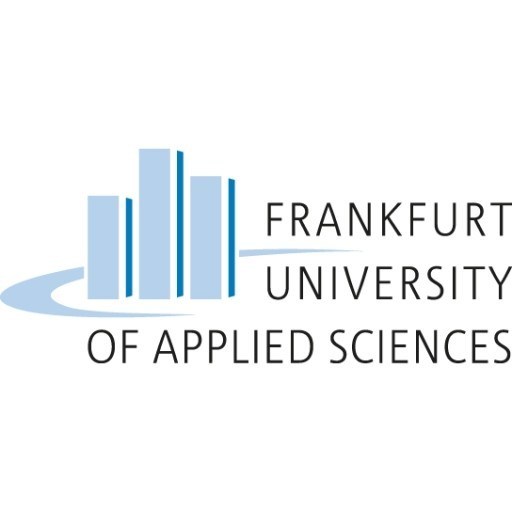The Urban Agglomerations master's program at Frankfurt University of Applied Sciences offers students an in-depth understanding of the complex dynamics and planning processes that shape modern urban regions. This interdisciplinary program is designed for individuals interested in developing sustainable solutions for the challenges faced by rapidly growing cities and their surrounding areas. Throughout the course, students gain comprehensive knowledge in urban development, spatial planning, transportation systems, environmental management, and socio-economic analysis, enabling them to contribute effectively to urban policy-making and implementation.
The curriculum combines theoretical foundations with practical applications, including project-based learning, field trips, and collaborations with local municipalities and industry partners. Students are encouraged to analyze real-world case studies, develop innovative strategies for urban renewal, and evaluate the impact of various planning initiatives. The program emphasizes a holistic approach to urban development, integrating considerations of social equity, environmental sustainability, and economic viability.
Graduates of this program are prepared for careers in urban planning agencies, governmental bodies, consulting firms, and non-governmental organizations. They possess the skills necessary to manage complex projects, facilitate stakeholder engagement, and implement sustainable urban solutions. By fostering critical thinking, technical expertise, and a global perspective, the Urban Agglomerations master's program aims to equip students with the tools needed to shape resilient, livable, and environmentally friendly urban environments. The program benefits from Frankfurt’s strategic location and vibrant urban setting, offering valuable opportunities for practical experience and networking within a dynamic metropolitan context.
Educational organisation
Students spend the first and second semesters at Frankfurt University of Applied Sciences, in Germany. The third semester is an international exchange course at one of the international partner universities. In the fourth semester, students return to Frankfurt University of Applied Sciences to write their Master's thesis.This is a two-year, full-time course, with nine modules plus a final module for the Master's thesis. Each module is subdivided into units. The credits range from 5 to 30 credits per module, with 30 credits for the Master's thesis, in total 120 ECTS credits.
First semester in Frankfurt:
Module 1: Urban Planning and Development
Units: Urbanisation and Housing in a Global Context; Urban and City-regional Development; Sustainable Cities; Inclusive Cities and Universal Design
Module 2: Urban Culture and Governance
Units: Social and Cultural Challenges of Cities; Urban and City-regional Governance; Practice and Instruments of Land Management
Module 3: GIS and Remote Sensing
Units: GIS; Remote Sensing
First and second semesters in Frankfurt:
Module 4: Scientific Methods and Academic Skills
Units: Methods of Scientific Research and Academic Writing; Presentation and Moderation Skills
Module 5: German Language and Communication
Second semester in Frankfurt:
Module 6: Interdisciplinary Project
Module 7: Urban Infrastructure
Units: Water Management; Wastewater Management; Waste Management; Traffic Management
Module 8: Urban Ecology and Environment
Units: Urban and Regional Open Spaces; Urban Climate and Environmental Management; Energy Efficiency and Supply for Cities
Third semester at an international partner university
Module 9: International Exchange Course
Fourth semester in Frankfurt:
Module 10: Master's thesis and colloquium
Study abroad unit(s)
Mandatory stay at one of the international partner universities during the third semesterForms of assessment
Written and oral examsCourse objectives
The main goal of the programme is to impart a broad understanding and knowledge in the domain of "urban agglomerations" by connecting basic technical skills with non-technical aspects such as participation, project management, governance, financing, and policies as well as their social and cultural connotations. Students will be trained to work in interdisciplinary teams in an interdisciplinary subject area.Language requirements
TOEFL computer-based 213, paper-based 550, internet-based 80, IELTS 6, Cambridge First Certificate (A). Applicants with English as their mother tongue as well as graduates from English-language Bachelor's programmes are exempt.Academic requirements
The programme is geared towards graduates holding a German Diploma ("Diplom") or Bachelor's or equivalent first academic degree in architecture, civil engineering, urban, regional, landscape or environmental planning, environmental engineering, facility management, surveying, real estate, geoinformatics, or other planning-related disciplines.Professional experience of at least one year is required. This can be waived in the case of excellent final results in the first degree.
The application must include:
- application form with personal data and passport size photo
- detailed CV
- statement of personal objectives explaining the reasons for applying
- letter of recommendation written by a university professor or member of the teaching staff
- certificate of English language ability (if the first degree was not taken in English)
- certificate of first degree (BA or "Diplom")
- secondary school leaving certificate
- supporting documentation about relevant courses attended and completed at university and/or practical experience (optional)
- documented evidence of professional experience of at least one year
- copy of ID/Passport
- statement on how studies will be financed









